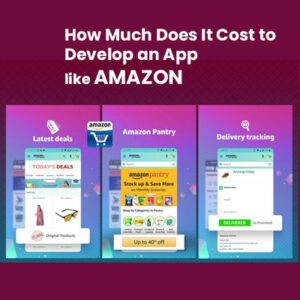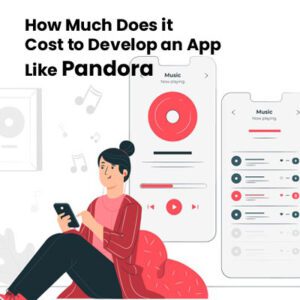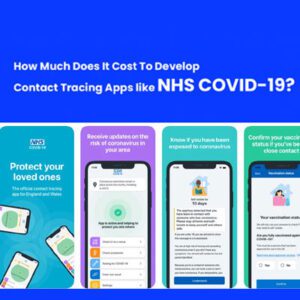Difference Between Web Application & Mobile Application
Gradually, organizations are becoming more alert in implementing mobile strategies. Every business realized the fact that they need to adopt a strategy, and that should be very much competitive in the market.
It was observed that not only mobile internet users surpassed desktop users, but also the usage of mobile apps was exceeded in the recent past. Unlike web apps, the download percentage of smart mobile apps is increasing year-over-year. Hence, many organizations are re-evaluating their mobile app development strategies.
Many people think that there is no need for a mobile app, and a good looking website that seems fantastic in mobile devices is enough. Some others say that a website can’t be useful like mobile apps.
There are a lot of features that should be considered before concluding that which one is better. In this blog, we provided you the pros and cons of web apps and mobile apps. I hope, this will be useful for your business before taking any decision.
Recommended : How Much Does It Cost To Make A Mobile App
Difference between Web apps and Mobile apps
There are three kinds of apps, which include web apps, native apps and the last one is the hybrid apps. Both native apps and hybrid apps are considered as mobile apps. Let’s know more about these three apps with some examples.
Web apps

What is a Web app?
Web apps are also called web-based apps or web-fronted apps. A web app is an application that runs by the internet through a web browser. It is designed in such a way that it can be used in many devices as per the operating system installed in the system.
Web App Pros
- Stress-free maintenance: The system developers only require one update set with a single codebase to maintain the web app
- Fast launch: There is no need for any formal approval procedure or any central market for web apps
- Compatible to multiple devices: Run in various devices, including the older model systems also
- Reasonable: Depends upon the number of browsers the web app can handle, its price is decided and usually
- Less Price: The web app price is much less than mobile apps
- Simply shared: through URLs, web apps are accessed
Web App Cons
- Connectivity: Internet connection is must to run a web app
- Limited Features: Available features might be limited to coding constraints
- Difficult to discover: Users have to manually create home page shortcuts for the web apps and check often to see the updates.
- Incorporations: No features to add any extra devices like a built-in camera or microphone
Web apps are built with common programming languages like HTML and CSS. Now, Progressive Web Apps (PWAs) take the benefits of some browser improvements so that web apps can behave the same as mobile apps. But, if we compare the web apps with mobile apps, its performance and operating system support can’t match.
Recommend: Top 10 Artificial Intelligence-driven App Development Trends
Mobile apps

When we usually see our mobiles, we can realize that our smartphone has multiple mobile applications. We can also install more advanced applications using the Google play store or App Store.
Generally, mobile apps are of two types: native and hybrid. Mobile app term can also be referred to as the “native app”.
Recommend: How Many Of You Agree That “AI is Greatly Impacting The “Mobile App Development Industry?
What is a mobile app?
A mobile app is a software application that is designed to meet the specific needs of the mobile user.
Mobile app pros
- More Speed: Operates with more speed
- Built-in marketing options: Helps business in promoting their app within the app store
- Push notifications: Send notifications to users through badges as well as banners
- Device functionality: allows hardware and software to access the functionalities of the system
- Instant access: Include shortcuts to your native app
Mobile app cons
- More costly: The mobile apps are more expensive than web apps
- Approval procedure: Mobile apps needs to verify in their corresponding app stores, which sometimes seem tricky
- Installation: Users have to download the app manually first to use it
- Updates: Need to update the mobile app periodically to get the more advanced version of that app
How native mobile apps are built?
Native mobile apps are created using some specific languages like C# for Windows phone apps, Objective-C or Swift for iOS apps, and C++ or Java for Android apps.
How hybrid mobile apps are built?
Hybrid apps are a mixture of both web apps as well as native apps. Normally, a hybrid app is a type of mobile app which is installed just like a native app, but when we run a hybrid app, it works like a web app (uses WebView platform- a type of small web browser which can be organized to run full screen).
Hybrid apps can access several operations just like a native app. But, the developers user CSS, HTML, and JavaScript to design hybrid apps.
Which type of app is more suitable?
The answer is, it depends upon the requirement. The selection is based upon the situation of your business needs. Think about what characteristics mean to you and your business. You should go with a final decision that meets your goals of the company.
Conclusion
As a leader in developing artificial intelligence-based mobile applications, USM business systems suggest to go with mobile apps. Mobile applications are giving incredible benefits to your business. They can promote your brand easily. Moreover, it is very much necessary to give priority to the requirements of the users whether you are selecting to create a web app, native app, or hybrid app.
If you are thinking about building a mobile app for your company, we can help you to make the right decision for your project. For getting any extra information, contact us now!






















